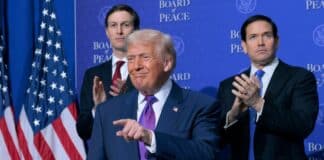Tulsi Gabbard, sworn in as Director of National Intelligence on February 12, 2025, has initiated a high-profile task force aimed at addressing alleged politicization and failures within the U.S. intelligence community. The effort is part of a broader push to restore confidence in national security functions.
Gabbard’s initiative seeks to collect past intelligence assessments concerning vulnerabilities in the 2020 and 2022 elections. This includes conducting forensic audits and gathering testimony from whistleblowers alleging politicization related to matters such as the Russia-collusion investigation and the Hunter Biden laptop story.
According to officials, the task force’s objective is multifaceted: analyze systemic breakdowns, hold accountable individuals involved, and develop oversight recommendations to prevent future misconduct . Documents indicate that Gabbard’s team views active resistance from within the intelligence apparatus as confirmation of the operation’s necessity.
Gabbard’s actions mark a notable shift within the intelligence community. Her appointment came after a confirmation battle, but she has since leveraged her position to initiate structural review. Critics suggest that using high-profile topics like election intel and politically charged controversies could heighten partisan tension within national security circles.
Her office will produce ongoing reports and formal recommendations. Officials say they plan to publish findings detailing vulnerabilities and suggesting legislative or procedural reforms. The approach blends investigative review with policy development, signaling a more proactive role for the Office of the DNI.
Observers will pay close attention to how Gabbard balances transparency with classified intelligence protections. How whistleblowers are handled, and whether findings are shared publicly or kept internal, may shape credibility and public confidence in the outcome.
Gabbard’s efforts come amid a broader conservative push to challenge what some describe as a “rotted intelligence community.” Whether the initiative results in lasting structural change or becomes a flashpoint in partisan debate remains to be seen.





